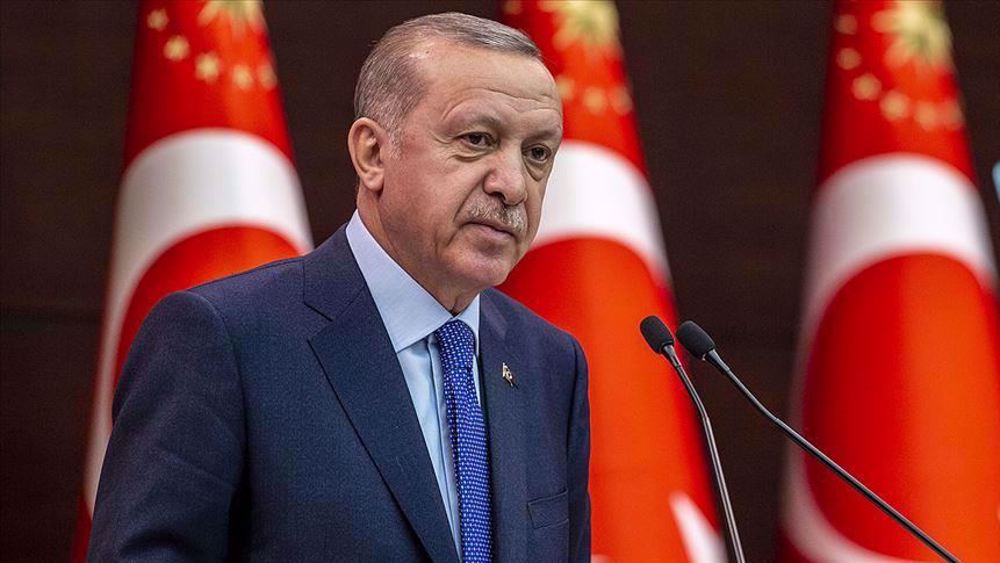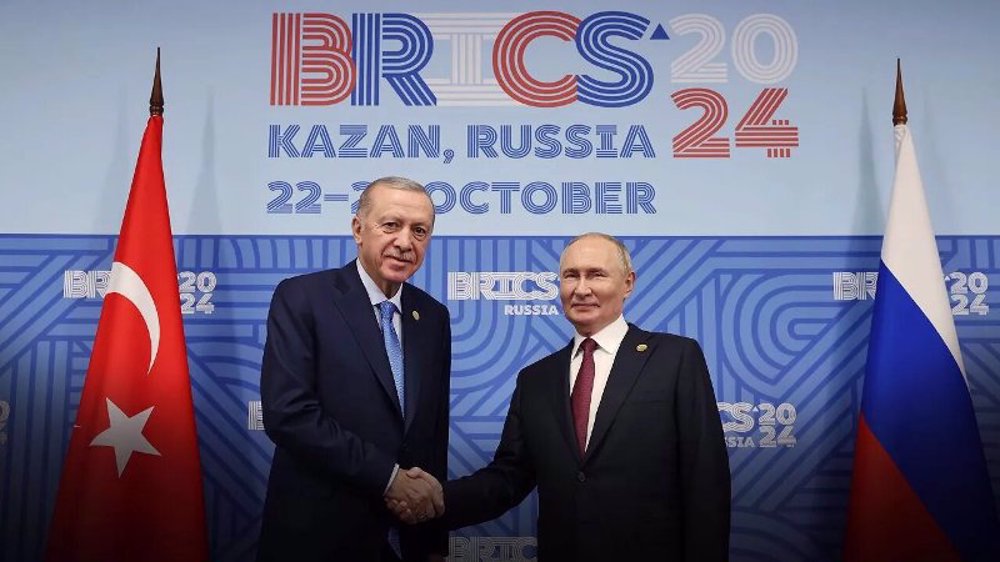Turkey signals escalating Syria attack
Prime Minister Ahmet Davutoglu accuses the Syrian government of being directly responsible for a bombing in Ankara, saying Turkey will continue to shell Kurdish positions inside the Arab country.
Davutoglu on Thursday said a member of the Syria Kurdish YPG militia working with PKK militants was behind the Ankara bombing that killed 28 people a day before. The premier also accused Russia of using YPG against Turkey.
The leader of the Syrian Kurdish Democratic Union Party denied the accusation, saying Ankara was making the allegation in order to escalate the conflict in Syria.
"We are completely refuting that," Saleh Muslim, co-chair of the PYD, told Reuters. He also denied claims that the group's armed YPG wing was firing into Turkey.
"I can assure you that not even one bullet is fired by YPG into Turkey," Muslim said. "They don't consider Turkey as an enemy," he said.
On Thursday, a bomb detonated by remote control killed seven Turkish security force members travelling in a military vehicle in southeast Turkey.
The blast hit the armored vehicle on the highway linking Diyarbakir, the largest city in the mainly Kurdish southeast, to the district of Lice. Sources had previously said the explosion hit a convoy of vehicles.
Davutoglu said 26 of the 28 killed in the Ankara blast were soldiers.
Shortly after the bombing, Turkish warplanes bombed northern Iraq overnight, killing 60-70 militants, including senior PKK figures, he added.
In a live television speech, Davutoglu said the Ankara bombing showed that the YPG was a terrorist organization and that Turkey expected cooperation from its allies against the group.
A car laden with explosives detonated next to the military buses as they waited at traffic lights near Turkey's armed forces' headquarters, parliament and government buildings in Ankara late on Wednesday.
The military described it as a terrorist attack and a senior security source said initial signs indicated militants from the outlawed Kurdistan Workers Party (PKK) were responsible.
The co-leader of the PKK umbrella group, Cemil Bayik, said he did not know who was responsible but the attack could be a response to "massacres" in Turkey's Kurdish-populated regions.
12 killed as Israel strikes Lebanon’s historic city of Tyre
Israel used US weapons in ‘deliberate’ strike on journalists in Lebanon: Report
#BribedByAIPAC: US lawmakers on Zionist lobby payroll irked by ICC arrest warrants
From cradle to chaos: My infant son’s journey through war and displacement
Lebanon condemns Israeli attack on UN peacekeepers
‘Everyone here is at risk’: Injured Kamal Adwan Hospital director’s poignant message
VIDEO | 'We will rebuild a thousand times’
Ex-Israeli war minister Gallant to head to US despite ICC arrest warrant









 This makes it easy to access the Press TV website
This makes it easy to access the Press TV website